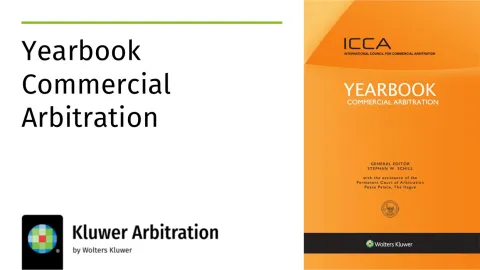Sun-Flower v Spain: Israel’s First ICSID Enforcement Case and the Legislative Gap
November 4, 2025
For over 40 years, since Israel ratified the ICSID Convention (“the Convention”) in 1983, its obligations under the treaty have remained largely theoretical. This long-standing status quo was finally tested by the enforcement action of the Sun-Flower Olmeda GmbH & Co KG v Kingdom of Spain award (Tel-Aviv District Court 11552-02-23). On 25 August 2025, the Israeli District Court of Tel-Aviv-Jaffa ("the Court") issued Israel’s first ICSID enforcement decision, dismissing the application on forum non conveniens grounds.
This ruling questions Israel’s ability to fulfil its commitments under the Convention and enforce ICSID awards "as if it were a final judgment of a court" in Israel (Article 54(1) of the Convention). In addition, it leaves a crucial legal argument brought by Spain unanswered: whether a foreign State enjoys immunity from jurisdiction in Israel when faced with an ICSID enforcement action? This post argues that the Court's decision, together with the remaining unresolved question of foreign States' immunity, reveals a legislative lacuna, and offers a potential path forward, anticipating an appeal.
Israel Legal Framework and the ICSID Convention
Israel's legal system is dualist, requiring legislation in order to give treaties domestic effect. For over four decades since its ratification of the Convention, Israel has enacted no dedicated implementing legislation, arguably violating Article 69 of the Convention, which requires each Contracting State to "take such legislative or other measures as may be necessary for making the provisions of this Convention effective" in its territory. Worth noting is that Israel cannot rely on its dualist character to avoid responsibility at the international level: under Article 4 of the Articles on Responsibility of States for Internationally Wrongful Acts, the conduct of judicial organs is attributable to the State, and a refusal to recognize and enforce an ICSID award may thus engage Israel’s responsibility for breach of the ICSID Convention.
In the absence of implementing legislation, Israel’s existing arbitration framework is potentially ill-suited for giving effect to the Convention. The Foreign Judgments Enforcement Law (1958) applies strictly to judicial decisions rendered in foreign courts. The recently enacted International Commercial Arbitration Law (2024), which gives effect to the UNCITRAL Model Law, applies exclusively to international commercial arbitration, excluding ICSID arbitration (Article 3(a)).
The closest domestic hook for ICSID enforcement is a 1974 amendment to the Arbitration Law (1968), which grants precedence to international conventions over domestic arbitration law in relation to treaty-based arbitral awards (Article 29A). In the Sun-Flower proceedings, the Attorney General ("AG") declined to intervene formally under her statutory authority but nonetheless submitted a limited notification on certain preliminary issues. In that notification, she maintained that Article 29 absorbed the ICSID Convention, including its enforcement provisions, into Israeli law. Yet the 1968 Law continues to empower Israeli courts to review foreign awards on discretionary grounds, permitting, for instance, annulment of arbitral awards for procedural defects such as lack of due process, excess of authority or contravention of public policy (Article 24). This discretionary judicial review is inconsistent with ICSID’s regime, which requires automatic enforcement without reviewing the merits. This inconsistency likely reflects the fact that both the Arbitration Law and its amendment predated Israel’s ratification of the ICSID Convention.
Sun-Flower v Spain and the Israeli Court's Decision
The underlying dispute originated from an investment in Spain’s solar energy sector made through a German-registered project company jointly owned by two Israeli renewable-energy firms. After Spain retroactively changed the regulatory regime for solar energy producers, harming the investment, the company initiated arbitration under the Energy Charter Treaty (“ECT”). An ICSID tribunal found Spain in breach and awarded Sun-Flower EUR 18,360,528 in damages. Spain’s annulment request before an ICSID ad hoc committee was denied on 13 November 2023.
With all internal ICSID remedies exhausted and against the backdrop of decisions by the Court of Justice of the European Union (“CJEU”) holding that intra-EU investor-State arbitration clauses are incompatible with EU law, Sun-Flower sought to enforce the award in Israel. On 25 August 2025, the Court dismissed the application on forum non conveniens grounds. It held that Israel lacked any meaningful nexus to the dispute: neither party was domiciled in Israel, the project was unrelated to Israel, and the applicant had not identified Spanish assets located in Israel. The Court further observed that neither party could have reasonably expected enforcement in Israel and characterized the application as "forum shopping," particularly in light of the CJEU's rulings on intra-EU arbitration under the ECT.
The Court rejected a strict reading of Article 54 of the Convention, stating that Israeli courts are not a "rubber stamp" and warning against becoming a "global receptacle" for disputes lacking connection to Israel which would undermine public interest and international comity vis-à-vis EU law.
In essence, this decision was based on four main factors: (1) the absence of a nexus with Israel, (2) the parties’ legitimate enforcement expectations, (3) the Court’s judicial role, and (4) public interest in respecting EU law. However, these considerations are inconsistent with Israel’s obligations under the Convention, which addresses the first three factors explicitly through Article 54 and does not recognize the fourth as a valid basis for refusal.
The Israeli court's approach to the doctrine of forum non conveniens stands in sharp contrast with a decision issued only days earlier by the United States Supreme Court in Spain v Blasket Renewable Investments (14 August 2025). Like Sun-Flower, this case involved enforcement of an ECT-based award against Spain (for previous coverage on this case see here and here). The US Supreme Court rejected Spain’s forum non conveniens argument, holding that the Convention and its US implementing statute create an "obligation impervious to judicial discretion" which leaves no room for forum non conveniens.
A key distinction concerns execution. The US Court held that only US courts can attach assets located in the US; thus, no adequate alternative forum existed. By contrast, the Israeli Court relied on the absence of identified Spanish assets in Israel, to reinforce its forum non conveniens conclusion. The applicant responded that execution is irrelevant at the recognition/enforcement stage and that it should not be required to disclose its execution strategy. The US Court’s dictum appears to align with that position:
"Forum non conveniens doesn’t apply in actions to enforce ICSID or New York Convention awards, because dismissing on that ground would contravene both treaties and the federal statutes implementing them."
The US Supreme Court further emphasized that "as a common-law rule, forum non conveniens must give way to Congress’s command", citing ICSID Convention Article 54(1) and 22 US Code § 1650a(a) implementing it.
The Unanswered Question: Sovereign Immunity
Since the Court dismissed the case on jurisdictional grounds, it did not address sovereign immunity. This omission is significant given Israel’s Foreign States Immunity Law (2008), which creates interpretive challenges for ICSID enforcement. Article 11 of this Law provides:
"Article 11 – Arbitration
(a) Where a foreign state has agreed in writing to submit to arbitration a dispute which has arisen or is likely to arise in the future, the foreign state shall not have immunity from jurisdiction, in respect of court proceedings connected with the arbitration, unless it has been otherwise determined in the arbitration agreement.
(b) The provisions of this section shall not apply to an arbitration agreement between states to which the provisions of public international law apply, except such an agreement one of the parties to which is a separate entity, not being a central bank."
Article 11(a) removes immunity for arbitration-related court proceedings upon written consent. Article 11(b) excludes state-to-state agreements governed by public international law. In her limited notification to the Court during the Sun-Flower proceedings, the AG stated that Article 11(b) was not intended to exclude arbitrations involving private parties, and that investor-State proceedings therefore fall within the waiver of sovereign immunity under Article 11(a). The core interpretive issue arises from ICSID's hybrid nature. While the Convention itself and potentially the applicable instruments of consent (such as bilateral/multilateral investment treaties) are governed by PIL, the underlying investor-host State relationship can derive from private law contracts or domestic regulatory frameworks. This creates uncertainty, not resolved by the Court, as to whether or not ICSID awards would enjoy sovereign immunity waiver under the law.
Further ambiguity concerns the scope of the immunity waiver under Article 11(a): do "proceedings connected with the arbitration" encompass execution? An expansive reading risks conflict with Article 55 of the Convention (explicitly preserving immunity from execution), while excluding ICSID awards from Article 11(a)’s immunity waiver, as argued by Spain, would grant immunity even at the recognition/enforcement stage, contrary to Article 54 of the Convention.
Conclusion and A Path Forward
In anticipation for an appeal to the Supreme Court, the Sun-Flower case can still provide a pivotal opportunity to enable the enforcement of ICSID awards within Israel's existing legislative framework. Although clear gaps remain in legislation, the Court possesses an established interpretative tool that could provide a path forward: The "presumption of interpretative compatibility". This principle, applicable in common law States, is frequently employed in Israeli jurisprudence for cases concerning PIL or international human rights obligations that have not been legislated domestically. It instructs courts to interpret domestic statutes harmoniously with Israel’s international obligations, unless the legislator has clearly expressed a contrary intent. As Supreme Court Judge Dorner explained in 2599/00 Yated v Ministry of Education, an interpretation rule in Israel is the presumption "that there is a conformity between the state's laws and the norms of international law to which the State of Israel is bound" and that therefore "laws shall be interpreted, wherever possible, in a manner consistent with these norms". Similarly, former President of the Supreme Court Barak stated in 7048/97 John Does v Ministry of Defence that:
"it is presumed that the purpose of the law is, inter alia, to fulfill the provisions of international law and not to contradict them".
By invoking this presumption, the Supreme Court could also construe Article 11(a) of the Immunity Law consistently with Articles 54 and 55 of the ICSID Convention — removing immunity at the recognition/enforcement stage while preserving immunity from execution.
Nevertheless, relying on judicial interpretation is a limited solution. As the US Supreme Court’s approach illustrates, the most reliable way for dualist systems to honour treaty obligations is through legislation. Relying solely on judicial creativity risks inconsistency and inadvertent breaches. Israel legislated the New York Convention in 1978; it should now do the same for the ICSID Convention.
You may also like










